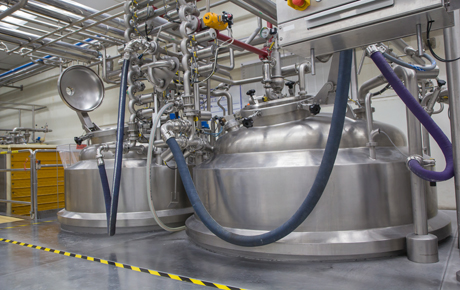Corrosion-resistant chemical hoses: Expert guide and detailed explanation of application areas
2026-01-27 09:44:00
In modern industrial production and experimental processes, corrosion-resistant chemical hoses are essential and important components. These hoses are not only used to transport a variety of different chemicals, but also must maintain good performance under various harsh environmental conditions. Therefore, choosing the right corrosion-resistant chemical hose is of great significance to ensure safety and improve efficiency. This article will explore in depth the characteristics, application areas, selection guidelines, and maintenance strategies of corrosion-resistant chemical hoses.
1. Characteristics of corrosion-resistant chemical hoses
Corrosion-resistant chemical hoses are designed specifically for conveying corrosive materials, and their design and material selection have special considerations. Here are some of their main features:
1. Excellent chemical corrosion resistance: This type of hose is usually made of high-performance synthetic rubber or plastics such as polytetrafluoroethylene (PTFE), chloroprene rubber (CR) and ethylene propylene rubber (EPDM) to resist the erosion of various chemical corrosive substances.
2. High and low temperature performance: Corrosion-resistant chemical hoses can work under extreme temperature conditions, usually with a heat resistance of more than 200°C and a cold resistance of less than -40°C, making them suitable for a wide range of industrial environments.
3. High-pressure bearing capacity: In terms of pressure transmission, these hoses usually have a high pressure bearing capacity and can adapt to high-pressure transmission needs.
4. Flexibility and wear resistance: High-quality hoses have sufficient flexibility for easy installation and operation, while special surface treatment provides good wear resistance and extends their service life.
5. Anti-static performance: Used in certain specific environments, especially in flammable and explosive occasions, the hose has an anti-static function to prevent static electricity accumulation from causing danger.
2. Application fields of corrosion-resistant chemical hoses
Corrosion-resistant chemical hoses are widely used in various industrial and laboratory scenarios. The following are some typical application fields:
1. Chemical industry:
Chemical production often requires the handling of various corrosive substances such as acids, alkalis, solvents, etc., which requires highly corrosion-resistant hoses for transportation and transfer. For example, in the chlor-alkali industry, the transportation of chlorine and hydrochloric acid requires highly corrosion-resistant hoses.
2. Pharmaceutical industry:
The purity and stability of the transported materials in the pharmaceutical production process are extremely high. Corrosion-resistant chemical hoses are often used to transport high-purity reagents and drug solutions to ensure that they are not contaminated.
3. Food and beverage industry:
In the production of food and beverages, the transported materials must be both corrosion-resistant and meet food-grade requirements to ensure food safety. Corrosion-resistant chemical hoses are often used in the production and processing of wine, milk, juice, etc.
4. Environmental protection industry:
Environmental protection projects such as wastewater treatment and flue gas desulfurization often involve the transportation of highly corrosive media. Corrosion-resistant chemical hoses provide reliable solutions for various environmental protection equipment and systems.
5. Laboratories and scientific research institutions:
In various chemical experiments, corrosion-resistant chemical hoses are used to transport experimental chemical reagents, which meets the high demand for accuracy and safety in laboratories.
In summary, as a key industrial material, the selection and application of corrosion-resistant chemical hoses require systematic understanding and careful consideration. Whether it is the chemical, pharmaceutical, food and beverage or environmental protection industries, there is a wide and important demand for it. Through correct selection, installation and maintenance, production efficiency can be greatly improved, operating costs can be reduced, and the long-term stability and safety of the system can be guaranteed. It is hoped that the information and guidelines provided in this article can provide valuable reference and help for professionals in related fields.